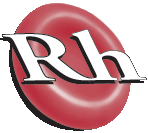Safe Mother, Safe Baby, Buckle Up
For the best protection wear your seatbelt ABOVE and BELOW your belly.
Frequently Asked Questions
Q: Can wearing my seatbelt hurt my baby?
A: It is safer for both you and your baby to be buckled in. Being thrown outside the car causes serious injury or death. Protecting yourself from injury protects your baby. For the best protection, wear your seatbelt correctly. The shoulder belt should be placed on your shoulder, running between your breasts and above your belly, not over it. The lap belt should be placed very low, under your belly, across your hip bones. As your baby grows, you may need to lift your belly up to place the lap belt correctly.
Q: What if I crash into water or my car catches fire?
A: Less than one half of one percent of injury-causing car crashes involve water or fire. Even then, wearing your seatbelt means you are more likely to be conscious after the crash and able to get out of your vehicle safely.
Q: What should I do if I find wearing my seatbelt uncomfortable?
A: Wearing your seatbelt protects you and your baby. If the shoulder portion of the seatbelt is rubbing your neck, some cars allow you to adjust the height of the shoulder strap anchor point. Never place the seatbelt behind your back or put the shoulder belt under your arm. Taking your winter coat off may keep the lap belt from slipping up. Make sure both belts fit snugly.
Q: What about other occupants of the car?
A: Everyone in the vehicle needs to be buckled in to be protected. In a crash, unbelted passengers can injure or kill the driver or other passengers.
Q: How should I position my seat and steering wheel?
A: Adjust the driver's seat back as far as possible while still allowing you to reach the gas and brake pedals. Make sure the steering wheel is tilted so that, in the event of a crash, the air bag will deploy towards your breastbone, not your face or abdomen.
Q: What should I do when I am pregnant and have an car crash?
A: Seek immediate medical assistance. If you are injured, call 911. If you feel you are uninjured you should still go directly to your nearest hospital for an assessment. The staff may decide you should be seen by a specialist. Since babies can be injured even when their mothers are not, your baby's heart rate may be monitored for 4 hours or longer. Report the following warning signs promptly to your maternity heath care provider: vaginal bleeding, if your waters break, uterine contractions, pain or abdominal tenderness and any change in the baby's movements.
|
|
 |
 |
 |







